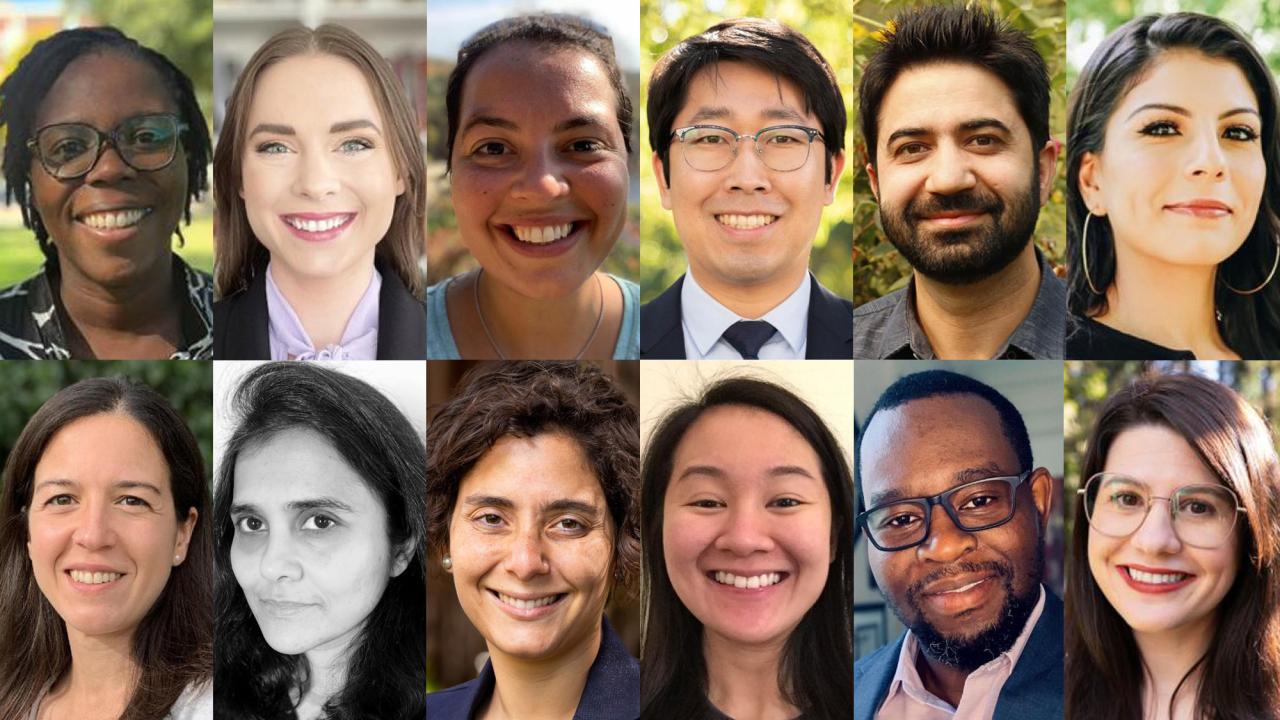The work of 12 early-career faculty members will get a boost as this year’s class of Hellman Fellows. They will receive grants ranging from $16,000 to $49,000, for a total of $330,000 awarded.
Their work covers a wide range of topics, from the educational experiences of Venezuelan immigrants to a wireless device that monitors for seizures.
“We are excited to see the work these talented faculty members will continue to produce, and we are grateful for the ability to help augment their research enterprises through this ongoing program,” said Philip Kass, vice provost of Academic Affairs, which administers the Hellman Fellows Program at UC Davis.

The fellowship is a UC-wide program, having been started by San Francisco philanthropists Chris and Warren Hellman to bolster the work of faculty members who were just a few years into their careers — often enough time to exhaust their initial funding but not long enough to garner a significant amount of external funding.
The program was launched at UC San Diego and UC Berkeley in 1995, eventually expanding to all 10 UC campuses, including UC Davis in 2008. More information about the history of the program is available on the Hellman Fellows website.
In 2020 the Hellman family provided endowments to each UC campus — $6 million to UC Davis — to continue the awards in perpetuity, through each campus’s Society of Hellman Fellows. The Hellmans also intended their endowments to encourage others to contribute to the societies. For more information on donating to the UC Davis society, contact Jennifer Prahl, director of foundation engagement, Office of Development and Alumni Relations, by email or at 530-752-1282.
More information on the fellowship is available on the Academic Affairs website.
The 2024-25 fellows
This year’s inductees to the UC Davis Society of Hellman Fellows, and their funded projects, are:
- Akua Banful, Department of English, College of Letters and Science — “Constructing the Tropics: Empire and Discourses of Climate”
- Emorie Beck, Department of Psychology, College of Letters and Science— “Social and Cognitive Health Dynamics as Digital Risk Biomarkers of ADRD”
- Anya Brown, Department of Evolution and Ecology, College of Biological Sciences — “Can Microbial Sharing Enhance Host Survival?”
- Hyoyoung Jeong, Department of Electrical and Computer Engineering, College of Engineering — “Closed-Loop Wireless System for Autonomous Seizure Monitoring and Mitigation”
- Imtiyaz Khanday, Department of Plant Sciences, College of Agricultural and Environmental Sciences — “Investigating Seed Development in Cereal Crops”
- Veronica Lerma, Department of Sociology, College of Letters and Science — “Criminalizing Chicanas: Intersectional Criminalization and Resistance in California’s Prison Alley”
- Maria Maldonado, Department of Plant Biology, College of Biological Sciences — “Understanding Kelp Photosynthesis To Develop Better Carbon Fixation Strategies”
- Tanuja Mishra, Department of Design, College of Letters and Science — “Design Bots ‘N’ Beings: Democratizing Access to Open-Source AI Technologies”
- Alicia Rusoja, School of Education — “The Educational Experiences of Venezuelan Immigrants in Northern California”
- Xiao Hui Tai, Department of Statistics, College of Letters and Science — “Armed Conflict and Women’s Economic Empowerment in Africa”
- Shingirai Taodzera, Department of African American and African Studies, College of Letters and Science — “Resourceful African Kingdoms”
- Kathleen Whiteley, Department of Native American Studies, College of Letters and Science — “Justice in Balance: The Indians of California Versus the United States of America”
Media Resources
Cody Kitaura is the editor of Dateline UC Davis and can be reached by email or at 530-752-1932.
